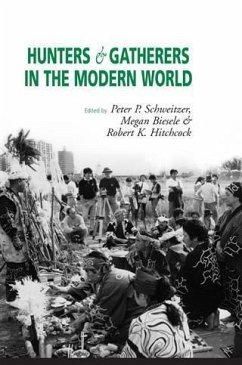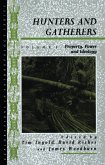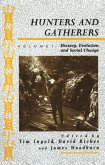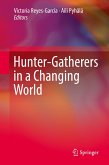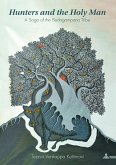Although quite a sizable body of literature exists on the living conditions of the hunters and gatherers, this volume is unique in that it represents the first extensive east-west scholarly exchange in anthropology since the demise of the USSR. Moreover, it also offers new perspectives from indigenous communities and scholars in an exchange that be termed "south-north" as opposed to " north-north," denoting the predominance of northern Europe and North America in scholarly debate.
The main focus of this volume is on the internal dynamics and political strategies of hunting and gathering societies in areas of self-determination and self-representation. More specifically, it examines areas such as warfare and conflict resolution, resistance, identity and the state, demography and ecology, gender and representation, and world view and religion. It raises a large number of major issues of common concerns and therefore makes important reading for all those interested in human rights issues, ethnic conflict, grassroots development and community organization, and environmental topics.
Dieser Download kann aus rechtlichen Gründen nur mit Rechnungsadresse in A, B, BG, CY, CZ, D, DK, EW, E, FIN, F, GR, HR, H, IRL, I, LT, L, LR, M, NL, PL, P, R, S, SLO, SK ausgeliefert werden.

